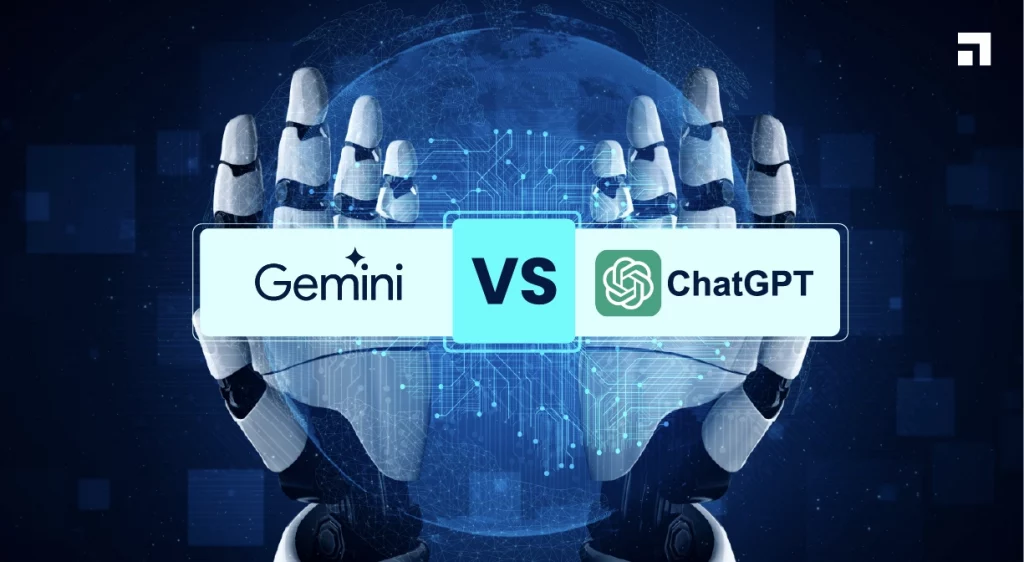Diving into Google’s AI platform, Gemini,and comparing it to my experience with ChatGPT over the past year has beenvery interesting and helpful for my marketing business. Let me break downwhat I’ve found in simpler terms:
Visual Interaction
Gemini (Google): Excels in visual processing; you can upload a photo for analysis or receive direct search results based on images.
ChatGPT (OpenAI): Primarily text-based, focusing on conversational interactions rather than visual input.
Search vs. Conversation
Gemini (Google): Strong in search- related tasks, providing direct answers and results based on queries.
ChatGPT (OpenAI): Specializes in natural language conversations, ideal for interactive and dynamic dialogues.
Content Generation
Gemini (Google): Aids in data- driven insights and predictions, useful for content optimization.
ChatGPT (OpenAI): Excellent for content generation, creating engaging and personalized text for various marketing contexts.
User Engagement
Gemini (Google): Suitable for visual engagement and search-oriented user interactions.
ChatGPT (OpenAI): Excels in text-based user engagement, enhancing conversations and customer interactions
Customization Focus
Gemini (Google): Offers customization through adjustable models and parameters.
ChatGPT (OpenAI): Provides adaptability through its versatile API, allowing integration into diverse marketing contexts.
Read on to learn more and examples of each of the differences!
Visual Interaction
Gemini (Google): Imagine you’re running a fashion e-commerce site. With Gemini, you can upload images of new clothing items, and it can quickly analyze trends, providing insights on which styles are likely to be popular based on visual data.
ChatGPT (OpenAI): If you’re managing customer support for the same fashion brand, ChatGPT can assist in answering text-based queries about product details, sizes, or order status through interactive conversations.
Search vs. Conversation
Gemini (Google): Suppose you’re a travel agency. With Gemini, you can easily input queries like “top travel destinations” and get direct search results that help in planning itineraries and recommending popular spots.
ChatGPT (OpenAI): Using ChatGPT, you could integrate a chatbot on your website that engages users in conversation. It might ask questions like “Looking for a beach vacation or a cultural experience?” and dynamically adapt responses based on user preferences.
Content Generation
Gemini (Google): Let’s say you’re managing a content marketing strategy. Gemini can analyze data to predict trending topics, helping you create data-driven blog posts or articles that align with current interests.
ChatGPT (OpenAI): In the same scenario, ChatGPT could be used to generate engaging social media posts or conversational content. For instance, it might draft personalized responses for user comments or questions on social media.
User Engagement
Gemini (Google): Consider a cooking website. Gemini can enhance user engagement by allowing users to upload a photo of ingredients, and it could provide recipe suggestions or nutritional information based on visual analysis.
ChatGPT (OpenAI): For the same cooking website, ChatGPT can be integrated into a chat feature to provide interactive cooking tips, personalized recipe recommendations, or answer user queries in a conversational manner.
Customization Focus
Gemini (Google): Suppose you’re in the financial industry. Gemini’s customization allows you to tailor models to analyze specific financial data, providing insights into market trends or predicting stock performances.
ChatGPT (OpenAI): In a customer service scenario within the financial sector, ChatGPT’s API can be adapted to provide personalized responses to user inquiries about account details, transaction history, or financial advice.

